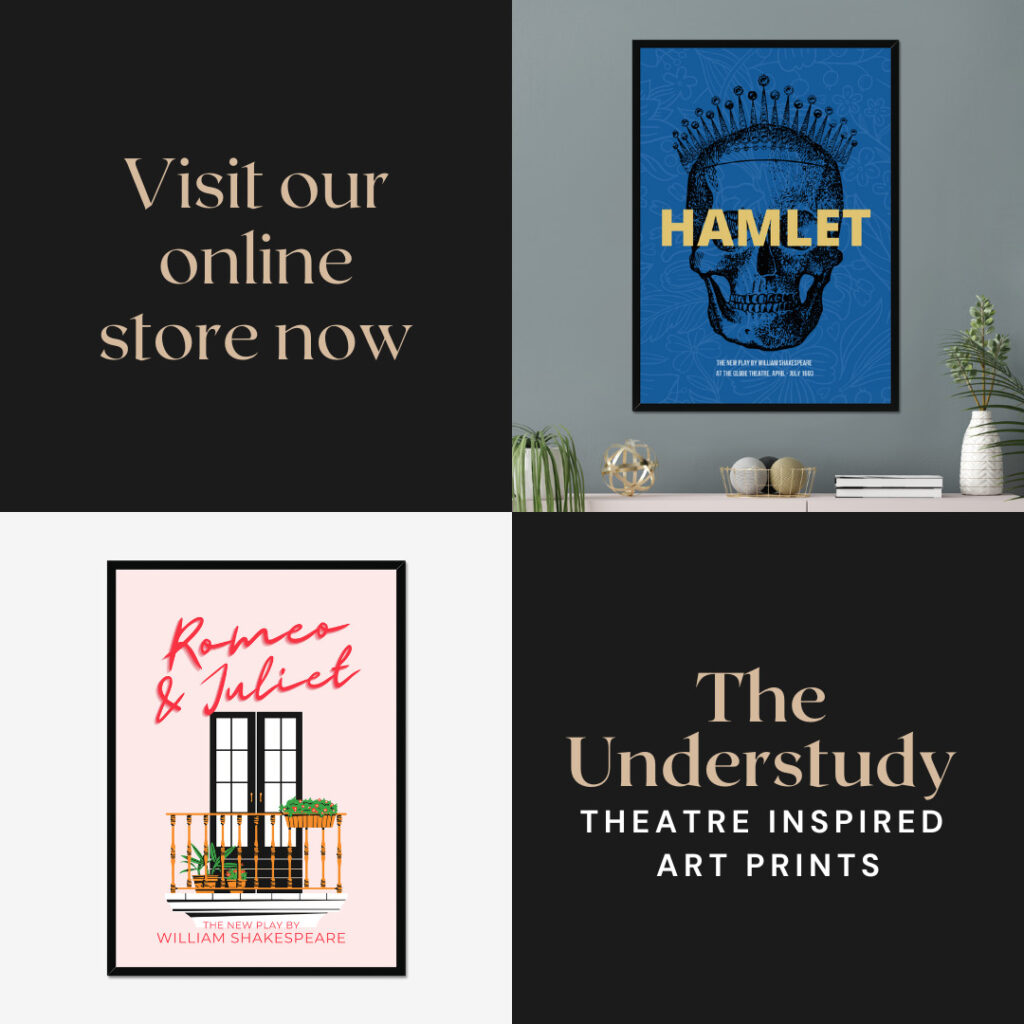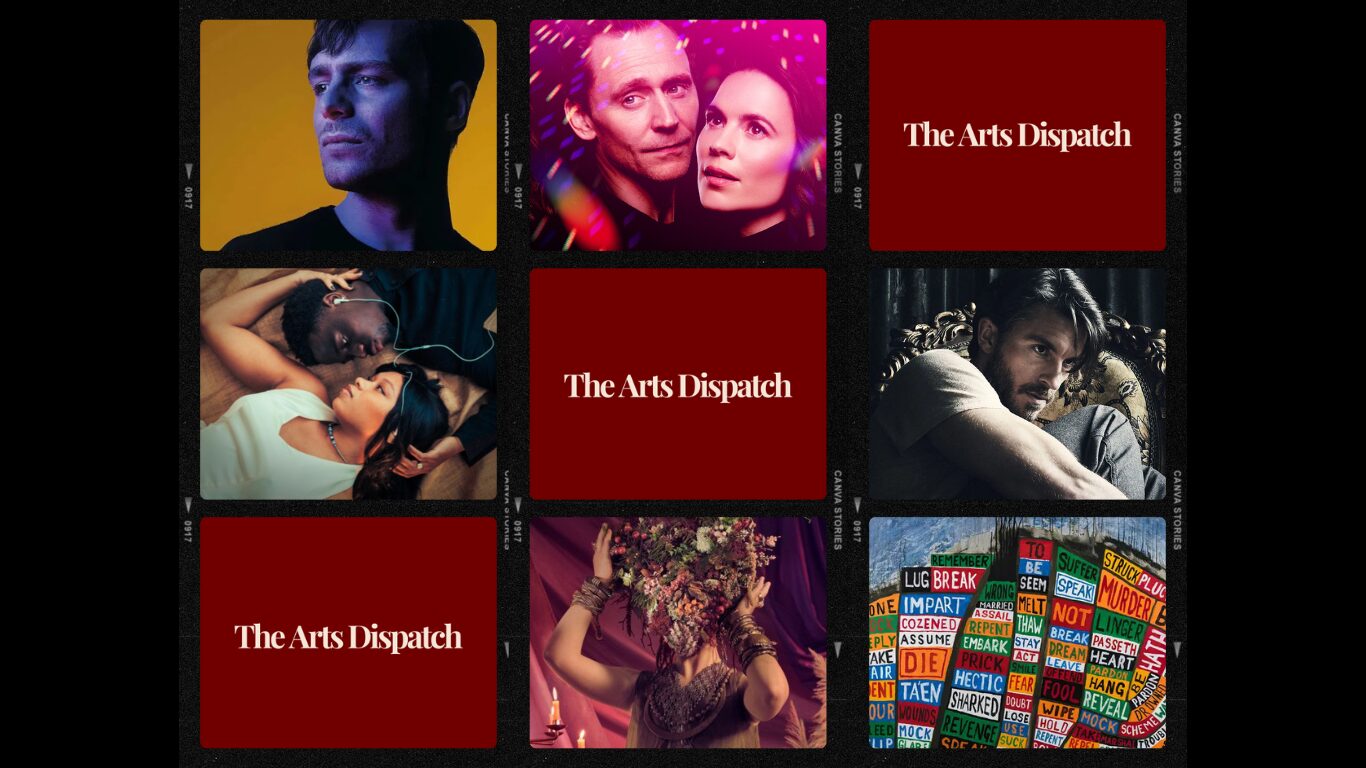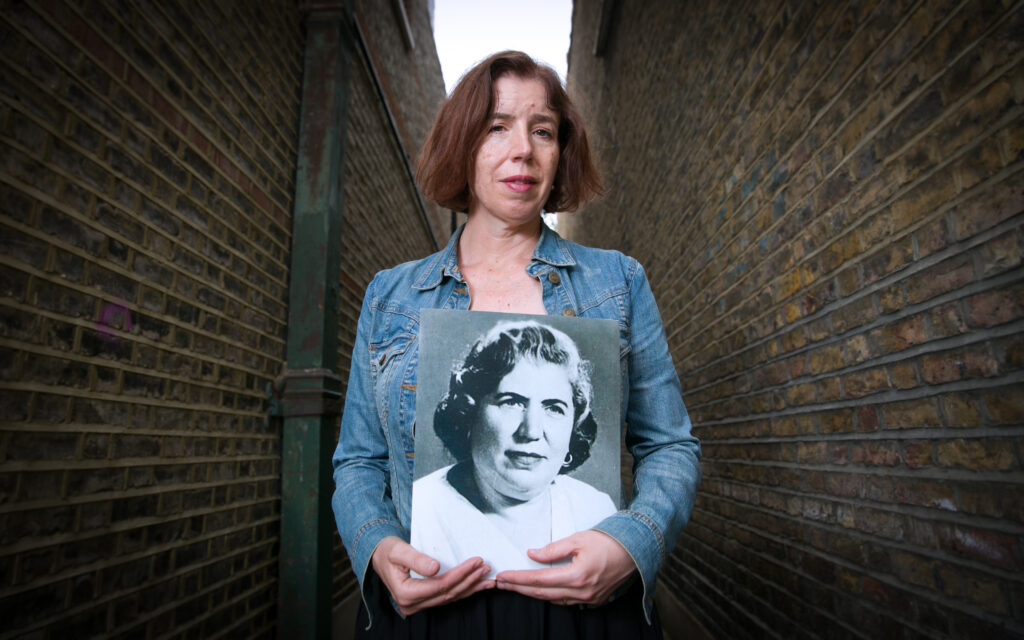
With a diverse cast and crew which includes both Jewish and Arab members among many others, Dina Ibrahim’s play tells the story of an Iraq that many people will not have known existed with the many different religions that made up the population of Baghdad living without religious conflict.
Ibrahim’s play, which opened tonight at Upstairs at the Gatehouse Theatre in Highgate, London, tells the true story of her grandmother, based on her father’s memoir, Um Kamal. The play revolves around the tumultuous events the Jewish family live through, beginning in the slums of Baghdad in 1948.
Ibrahim also performs in the play, taking on the role of her grandmother, with whom she shares the name Dina. We spoke with her about the production, what it was like exploring her family story on stage and about its increased relevance in the context of the renewed conflict in Palestine and Israel.
Q&A with Dina Ibrahim
What can you tell us about your play The Mother of Kamal?
It is based on true family history and my father’s memoir novel Um Kamal (which means Mother of Kamal in Arabic) and to tells of my Grandmother and her family who were working class Jewish Iraqi’s living in Baghdad in the 1940’s, a time of great political upheaval, where many different religions had lived previously harmoniously for millennia who now find themselves pitted against one another. It tells of the persecution of Jews and communists as Um-Kamal’s two teenage sons are arrested by the feared secret police, with the older son getting set free and the younger imprisoned for nine years. No one knows why one was released and other was not, and over the years rumours surface and take root, rumours that tell of one son having given evidence against the other to ensure his own release. A distraught Um-Kamal is reluctantly drawn into the communist party risking all to save her family. Decades later conflicting family narratives emerge of what happened the night of the arrest and we see an unravelling of the truth and an unburdening of guilt and at last a hope for healing.
What was it like to explore your family history and translate it to the stage?
It was a eye opener. Firstly, it was hard work, in the sense that it is set in particular place and time in history and these facts needed be correct, so I was very thorough in my research, including in my interviewing of family members across the globe. Here I discovered that versions of the same events were remembered differently and it was this that really set the tone for what I wanted to explore in this play, how one person’s truth is not necessarily another’s and how we hold onto the idea of what is true for ourselves and how this plays out and the impact of this over time. Also, as it is based on my dad’s memoir, there was so much within that, be it beautiful descriptions of places and its people and a whole host of feathered friends! (my dad in his book vividly paints a picture of the nature and in particular the birds that cross the sky in the middle east) and I obviously could not have all this in a two-hour play, so I had to be very clear in my own mind what the overarching thrust of the story is and how to and bring that to the stage as vividly as possible.
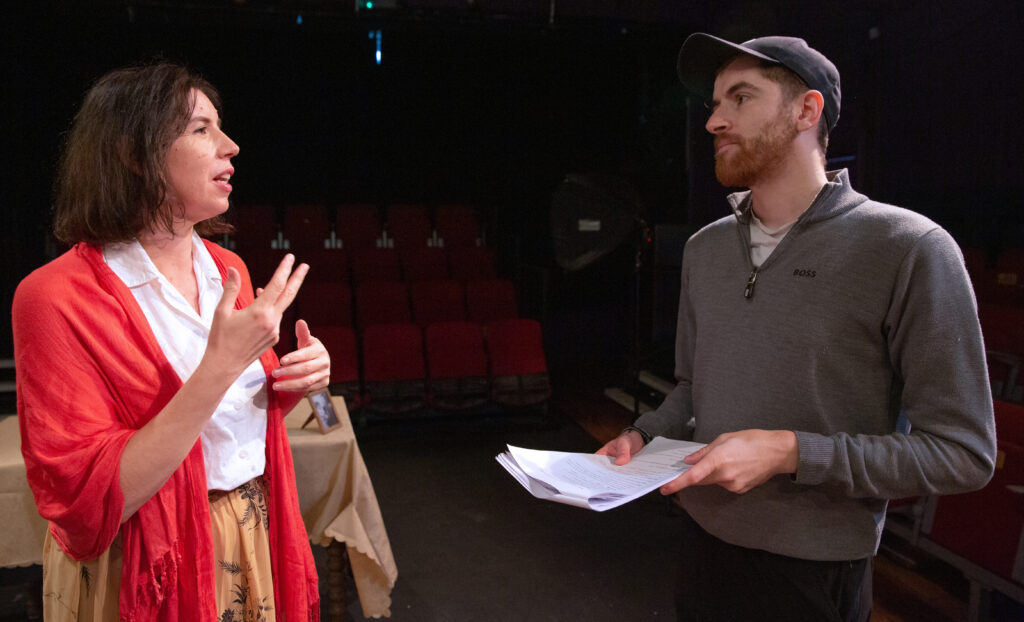
How does it feel to be playing your grandmother in the play?
It feels totally liberating! I feel like I am giving voice to her and many thousands of women who, given the political, social, and cultural restrictions of the time, were all too often overlooked and yet these were the ones who through their love and fortitude held families together, through the most turbulent and challenging of times. To speak my grandmother’s thoughts and her feelings and to show her strength, has been really humbling. I only saw my grandmother a few times and that was when she was a lot older, so to explore this young woman and the challenges she faced who then becomes the women I then knew has been a real revelation for me.
How did you approach developing the play and its blend of traditional and alternative theatre narrative forms?
Similarly, to the recollections of the family members I interviewed, I wanted to write and stage a story that resembled someone’s memory and the idea that memory jumps, repeats and is also frozen at times – so I was keen to explore that from the outset. And when I began writing I told myself that I was not going to restrict the creative process in any way, and that meant that I was not going to judge what I had written, and I was not going to say no to any idea I might have… anything and everything could be put down on paper and if it works, great and if it doesn’t, then that is great too! It was totally freeing and I needed this freedom as there was so much in the story I wanted to tell and encapsulating all can seem quite daunting. It also meant I enjoyed the process! I remember the joy I had at the idea of having a chorus/ensemble of what I then called the “Typewriter Chatter”.
These were a kind of Greek chorus that would observe and would reflect Um-Kamals thoughts/guilt but with the intriguing sound of typewriter keys…and these keys pressed rhymical would be able to set the mood and tone of the chorus (unwittingly the typewriting became an instrument of sorts that we use quite powerfully in the play.) Having this idea made me smile – I typed a few keys a home, found a rhythm and wrote. I never intended to consciously blend different theatre forms – it organically grew that way and it worked. It was Picasso who said ‘You start a painting and it becomes something altogether different. It’s surprising how little the artist’s will matters.”
This also applies to creative writing once you are in the moment. I have scenes that are naturalistic and then these meet others that are more immersive, and some scenes are both, and in our rehearsed readings and workshops this was developed further under the creative eye of our brilliant director Stephen Freeman, who ran with the idea of blending these theatrical forms. It was his belief in this vision that really helped shape the play.
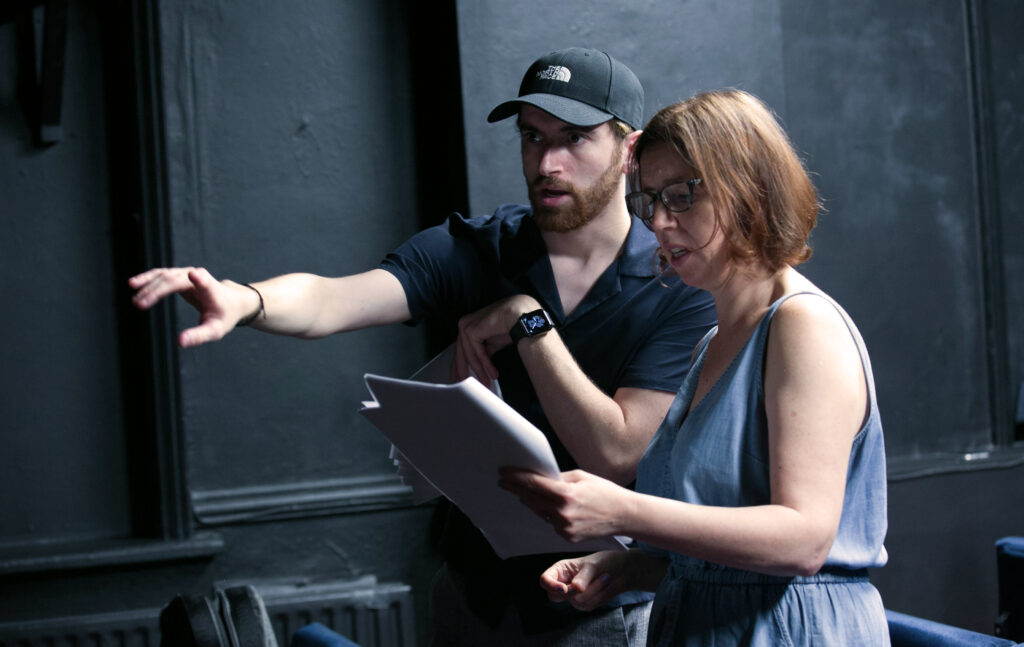
You wrote the play before recent events in Palestine and Israel and the humanitarian crisis that has followed, but do you see parallels between the events of your play and today?
Absolutely. The Middle East has been in conflict for a long time and now the horrors of the Israel -Palestine conflict make the play take an even more poignant significance. The play tells of a time where many different religions lived together harmoniously for millennia, yet this becomes fractured by political forces, and people, communities, neighbours were forced to take sides, to choose opposing camps. This seems like the inevitable. That happened then and it is happening now. Within the play, Um-Kamal has her own personal conflict of the heart, she has a painful choice to make, a camp to choose, and the consequences of this she carries with her. But the question is, is it truly inevitable that we must live our lives firmly rooted in opposing sides? Demonising each other… Eventually we see this burden unravel and very much like today a call for reconciliation is risky but essential for Um-Kamal and her family if only to keep sanity and humanity intact. It is a risk she takes.
What do you hope audiences will take away from the play?
A sense that in life we are intrinsically linked, no matter what our truth, understanding and opinion of a situation is and that ultimately, we share the human need for connection and this is something we all can all identity with. I hope they see it as a powerful play that throws a light on a time and place in history that there is little reference to and voices that are rarely heard. I hope the audience can identify with the burdens we put on ourselves in our trying to make the right choices and do the right thing, and within the great dilemmas and challenges we face, that a reaching out to each other is something that we might risk, simply in order to keep our sanity, if not to heal.
The Mother of Kamal is at Upstairs at the Gatehouse Theatre, Highgate until 28 January 2024











